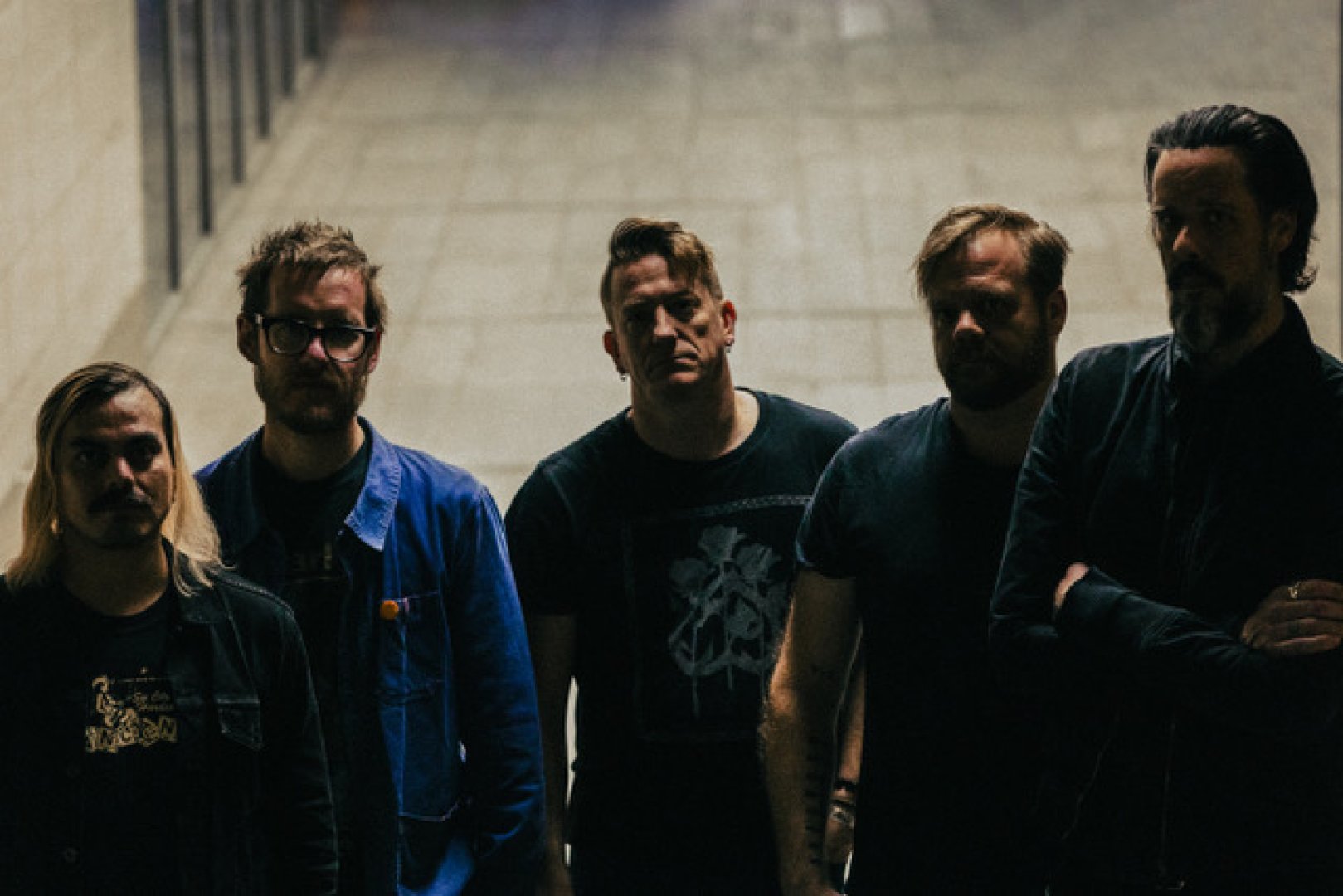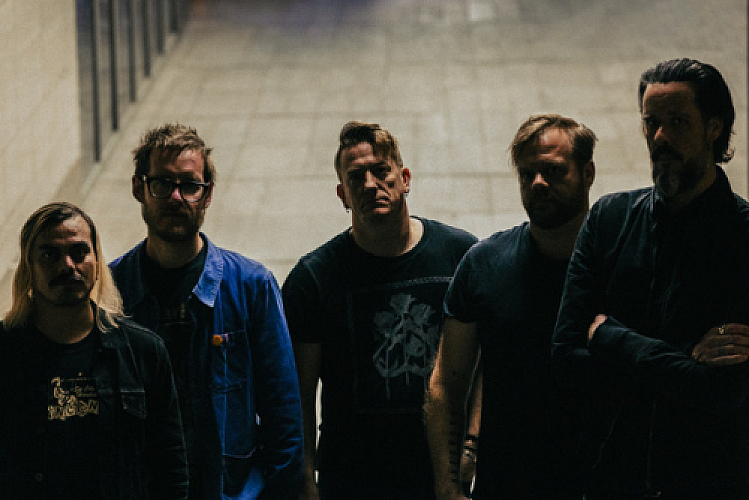Long-running cinematic rock band Caspian don't want you to call their fifth album a "redemption," a "comeback," a "rise from the ashes," or any of the other sentiments that emerge when bands return from nearly five years of silence.
"I’ve grown weary of reading about bands discuss the renewing, rehabilitative properties their most recent [album] has had on them," says guitarist/keyboardist Philip Jamieson. "They incur corrosion, come close to running out of gas, descend into the dark abyss, and finally emerge on the other side with a record that has given them crystal clear perspective and a confident path forward. On Circles is not that record."
Instead, this majestic collision of post-rock, metal, shoegaze, electronics, noise, minimalism and ambient music is an existential meditation, an acceptance of the cyclical nature of both life and career. Recorded at Studio 4 in Conshohocken, PA, by producer Will Yip (Code Orange, Defeater, Quicksand, Turnstile), On Circles marks the most organic writing and recording sessions in Caspian's 15-year history. Together for four weeklong songwriting sessions, the band (joined by propulsive new drummer Justin Forrest), opted for music gleaming with visceral impact instead of over-thought tangles, over-arching concepts and drawn-out crescendos
On Circles is an art-rock record swirling with fourth-world saxophones, dubby textures, 7/8 rhythms and hard-sawed cello from Jo Quail (Myrkyr, Winterfylleth, Poppy Ackroyd). The band stretches out to make room for guitarist Jonny Ashburn's melodic interplay ("Division Blues"), bassist Jani Zubkovs' punk shredding ("Collapser") and the mandolin of founding member Calvin Joss ("Flowers of Light"). Guitarist Erin Burke-Moran wrote a pastoral-to-epic, chamber-rock journey ("Ishmael") as a tribute to eight months spent on the Appalachian trail. The wistful "Nostalgist" features vocals from Kyle Durfey of fellow Northeastern alterna-rock grandeur artists Piano Becomes the Teeth. For the first time, each track is meant to stand alone.
"They're just songs that we got together and wrote over the course of a year while trying to have a good time and reclaim whatever it is that’s simple about all of this," says Jamieson. "Don’t get me wrong, we kicked our own asses constantly and stayed up staring at the ceiling thinking about song structures all night for a year here … but being free from the yolk of having our music relentlessly try to answer the un-answerable was emancipating and humbling."
The band's deeply personal 2015 LP Dust and Disquiet was a concept record about grief, dealing with the emotions after losing friend and bassist Chris Friedrich in 2013. After the two years of global touring that followed, Caspian took their first-ever long term hiatus – or what Jamieson called "an overdue emotional inventory." The reflection raised questions about the friction between artistic inspiration and financial reality, the increasingly demystified trudge of road life, and if "the healing power of music" is even a realistic expectation after all. During that time Jamieson personally traversed an "ugly grey underworld of depression, lethargy and emotional ambivalence," inspiring the lyrics to the title track.
"Music is a mediator to the unspeakable, and the unspeakable is always by definition out of reach, moving somewhere invisibly along the closed curve of a circle," says Jamieson. "Acknowledging all this, what if we just made an album for the simple sake of making music, with as few existential expectations as we are capable, with as much of our self-importance sidelined as possible in order to facilitate that?"
Eschewing many of the giant, enveloping wall-of-guitar build-ups of past Caspian albums, the songs inside On Circles even take circular paths, with no beginning or ends.
"Life isn’t a series of epic crescendos, " says Jamieson. "Sometimes it's the hint of one ('Onsra'), or a sequential series of crescendos that come in waves but aren’t set up to go for an obvious jugular ('Wildblood,' 'Ishmael'), or end up in a completely different place than where you expected, but pivot at the very last moment back to their beginning ('Division Blues')."


